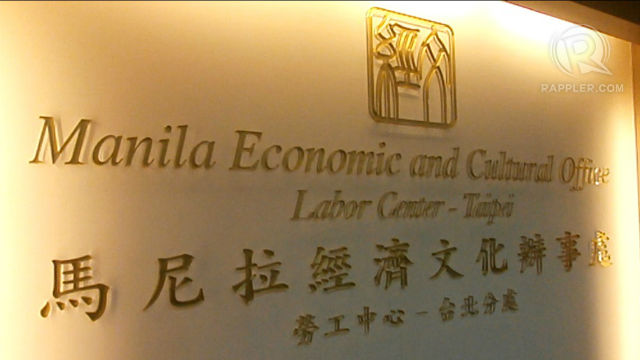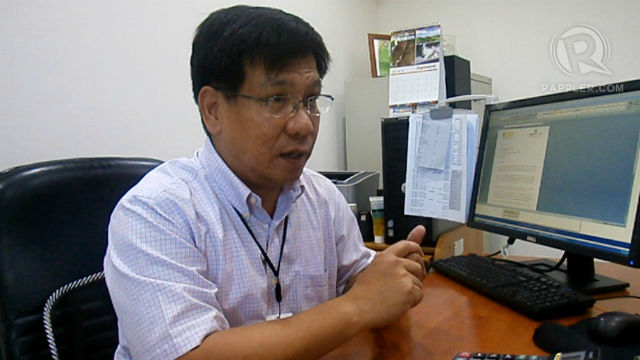SUMMARY
This is AI generated summarization, which may have errors. For context, always refer to the full article.

TAIPEI, Taiwan – The hiring of overseas Filipino workers (OFWs) in Taiwan is back on track.
This was according to Manila Economic and Cultural Office (MECO) Director of Labor Affairs Reydeluz Conferido.
In an interview with Rappler, Conferido said that as of Monday, August 12, two days after the hiring ban was lifted by the Taipei government, around 700 job opportunities for Filipinos had been requested by Taiwanese companies.
“Things are getting back to normal in terms of getting Filipinos in,” he said.
Conferido said that the ban did have its effect on the hiring of Filipinos. From May 2013 to June 2013, the number of OFWs in Taiwan decreased from 88,706 to 86,829. Most of the banned workers were from the electronics part and components manufacturing industry.
World class skills
Conferido maintained that during the ban, companies tried to look for other nationalities to hire, but they did not find any that could match the Filipino workers’ performance.
“Talagang naghanap din naman ‘yung Taiwan ng puwedeng ipalit sa mga workers natin, but they did not find it easy to replace our workers,” Conferido said.
(The Taiwan government tried to look for other alien workers to replace Filipinos, but they did not find it easy.)

Conferido said some companies even held off employment until the ban on Filipinos was lifted.
“Some employers don’t want to gamble on hiring foreign workers. They did it before and they were not happy with the quality of performance compared to the satisfaction that they were getting with the productivity of our Filipino workers,” Conferido said in a mix of Filipino and English.
Isolated cases of violence
Conferido said MECO recorded 3 cases of discrimination and violence against Filipinos during the ban. He maintained, however, that the cases were largely isolated.
“Usually ang mga gumagawa ang mga kabataan na mayroong involvement sa mga gangs. Siguro yung mga bata na-embolden, hindi natin alam kung may mga ultra-nationalists na nasa likod noon,” he added.
(Those who were involved in the cases of violence were mostly youth who are part of gangs. Perhaps they were emboldened. We don’t know if there were ultra-nationalists who encouraged them.)
The 3 confirmed cases involved Filipinos from Kaohsiung, Tainan, and Hsinchu. Their identities have been kept for their safety.
Conferido also said the Taiwanese media played a role in increasing the tension.
“At the height of the tension, all negative things that coud be said about the Philippines were published. They even told the story of [the later former President Ferdinand] Marcos,” he said.
Growing Filipino workers
According to the Council of Labor Affairs (CLA), as of June 2013, Filipinos registered the third biggest number of alien workers in Taiwan. The following are the countries with the most number of alien workers in Taiwan:
1) Indonesia – 43.98% (203,462)
2) Vietnam – 23.69% (109,626)
3) Philippines – 18.77% (88,829)
4) Thailand – 13.56% (62,737)
Data from CLA also showed the top 5 industries where Filipino workers are distributed:
1) Manufacturing (62,861)
2) Electronic parts and components manufacturing (26,933)
3) Social and personal services (22,570)
4) Fabricated metal products manufacturing (6,583)
5) Textiles Mills (3,597)
Conferido said that compared to other countries, Filipino workers in Taiwan are given more freedom to organize.
“Kahit ‘yung mga isolated at malalayong communities dito, nakakapag-organize ‘yung mga Pilipino,” Conferido added.
(Even in the isolated and far-flung communities here in Taiwan, the Filipino communities are able to organize events.)
He said that MECO is making steps to make sure that there will be no further cases of abuse.
“We have an agreement now with the CLA to start doing a post-arrival orientation. When the workers arrive at the airport, there’s a place allotted where we can give the workers orientation,” Conferido said. – Rappler.com
Add a comment
How does this make you feel?
There are no comments yet. Add your comment to start the conversation.